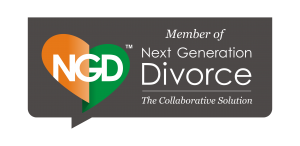Ever since my first basic collaborative divorce training in Tampa in 2011, I have been enthusiastically offering the collaborative process to my clients as a better way to handle family law matters. I have also tried to become a student of the process, reading every book I can get my hands on that discusses collaborative divorce.
Right now I am reading The Collaborative Way to Divorce: The Revolutionary Method That Results in Less Stress, Lower Costs, and Happier Kids – Without Going to Court. This book is written by Stu Webb, the founder of collaborative divorce, along with Ron Ousky, one of the early leaders of collaborative practitioners.
In the introduction of the book, Stu discusses how he came up with the collaborative method:
In 1989, I had been a divorce lawyer for about eighteen years – and was getting pretty sick of it. I saw what the adversarial court battles that were the focus of divorce were doing to my clients, and I knew the resulting negativity was having an effect on me, too.
In traditional litigation two lawyers (or teams of lawyers) hash out the divorce in a court of law. The actual parties to the divorce – the husband and wife – have almost no direct contact with each other, and what little interaction they have is usually bitter and unproductive. Tension, fear, anger, and recrimination prevail. This traditional process makes it almost impossible for the parties to have anything remotely resembling a healthy relationship after the divorce, even when there are children involved.
Read more →







